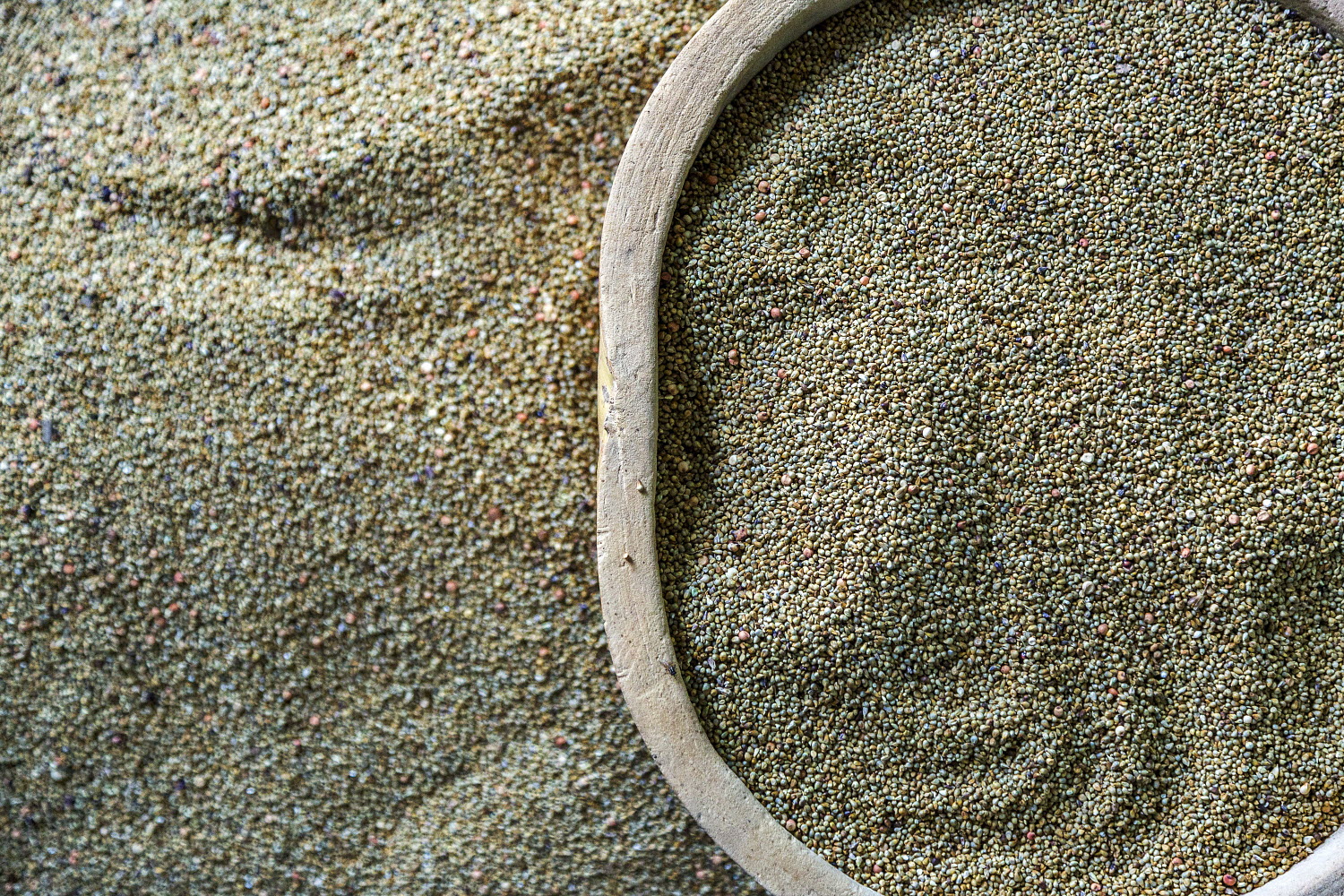Millet: the “forgotten crop” is making a comeback

©FAO/Andrew Esiebo
The drought-resistant cereal millet is now undergoing a renaissance in its cultivation and consumption as an important crop in sustainable agrifood systems. Türkiye ranks high in the world as a drought-risk prone country. As climate change accelerates the frequency and severity of droughts, it is the production of drought-tolerant crops such as millet will help agriculture cope with future challenges. Millet reproduces with limited water resources and is drought resistant. Known as the "forgotten crop," millet is now seen as a key crop that will raise the resiliency of farmers to climate shocks, raise livelihood security of smallholders, and help ensure food security and healthy diets.
Millet is rich in fibre, vitamins, and minerals, also contains essential micronutrient sources for human health, such as minerals and B vitamins. Since millet does not contain gluten, it is an extremely important alternative cereal for individuals with gluten intolerance.
In the context of making agriculture more climate-smart, and as part of the events of the International Year of Millets 2023, the Food and Agriculture Organization of the United Nations (FAO) organized the "Antalya Millet Workshop" in Antalya, Türkiye, on 21 September in cooperation with the Ministry of Agriculture and Forestry, Western Mediterranean Agricultural Research Institute Directorate. As part of a series of similar events in Türkiye, the workshop shared knowledge and experiences on the cultivation, agriculture, and use of millet species to raise awareness of the product group. The workshop also provided an opportunity for agricultural experts, farmers, researchers, and relevant stakeholders to come together to evaluate the problems, production potential, marketing, and trade opportunities of millet production. In addition, representatives from relevant sectors commented on policy recommendations and national or international cooperation opportunities.
FAO Assistant Representative Ayşegül Selışık, who participated in the workshop, emphasized that millet, is a natural treasure that deserves our attention and admiration.
“It is known that sorghum is the most widely cultivated millet species in our country. Besides sorghum, millet is produced in Türkiye for fermented beverages and animal feeds. Millet production can create important opportunities for new employment opportunities for small family farmers, especially for women producers. Important marketing opportunities can be created for many food products made from millet, such as millet flour, millet porridge, millet rice, millet pasta, millet halva, millet syrup, and millet desserts, especially as gluten-free food alternatives," she said.
Abdullah Ünlü, Director of the Western Mediterranean Agricultural Research Institute, stated that millet agricultural areas and the use of millet plants are increasing rapidly and that it will be a much more important agricultural product in the future. He underlined that the Institute and the ministry will collaborate to implement projects to increase and expand the production potential of millet.
Veysel Dönderalp, FAO Technical Expert, made an informative presentation in Antalya and Izmir on the International Year of Millets and FAO's work on millets at global level.
In the workshop, participants heard presentations on the status of sorghum production and varieties in Türkiye, research and development activities for sorghum breeding and recent developments in sorghum breeding, adaptation to climate change, and its role in nutrition.
On Friday, 22 September, in cooperation with Izmir Commodity Exchange, an event titled "International Year of Millet Izmir Workshop: The Place of Millet in Cuisine and Gastronomic Potential" will take place in in Çeşme/Alaçatı, one of the districts of Izmir. The gastronomy team of the Izmir Commodity Exchange will prepare menus and recipes featuring millet, and participants will have an opportunity to taste the results. The primary aim of this event is to discuss the dynamics of production and the importance and value of millet in gastronomy, as well as its wide range of uses, and to share the knowledge of experts on the subject. Nutritionist, activist, and animal-human mediator Dilara Koçak will present the place of millet in nutrition and offer granola, chips, and bars made with millet to the participants. Mine Ataman, one of Türkiye’s well-known journalists, will also explain the role of millet in our cultural heritage.
FAO will hold another workshop in Ankara on 2 October in partnership with the Ministry of Agriculture and Forestry, the General Directorate of Agricultural Research and Policies, and the Field Crops Central Research Institute to discuss the potential and future of millet in terms of agriculture and food.
Technical experts, including FAO Agriculture Officer Fazıl Düşünceli, and academicians will participate in a panel on millet production and usage areas in the world and in Türkiye.
This year has been the International Year of Millets. The events hosted by FAO and its partners have brought the “forgotten crop” back to our attention. Millet has a great potential as a drought-resistant, sustainable alternative cereal group that will contribute to food security, nutrition and enrich local cuisine.
